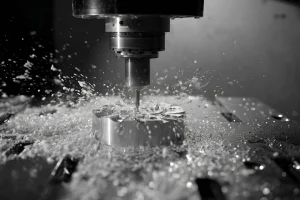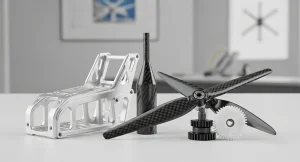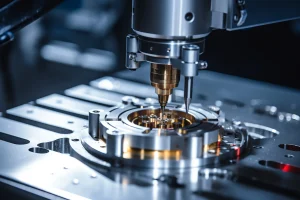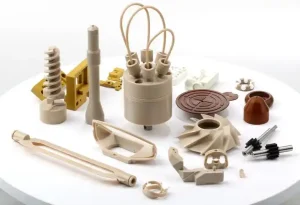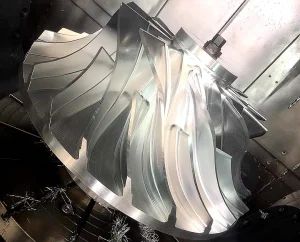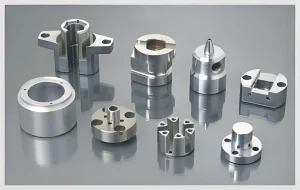Introduction
In the world of manufacturing, precision hardware parts processing is of utmost importance. Precision hardware parts are the building blocks of countless products, from automobiles and aerospace components to medical devices and electronics. The precision of these parts directly impacts the performance, reliability, and safety of the final products. However, one common and concerning issue that manufacturers often face is the degradation in the precision of precision hardware parts. But why does this happen? Let’s explore the various factors that can lead to a decline in the precision of these crucial components.
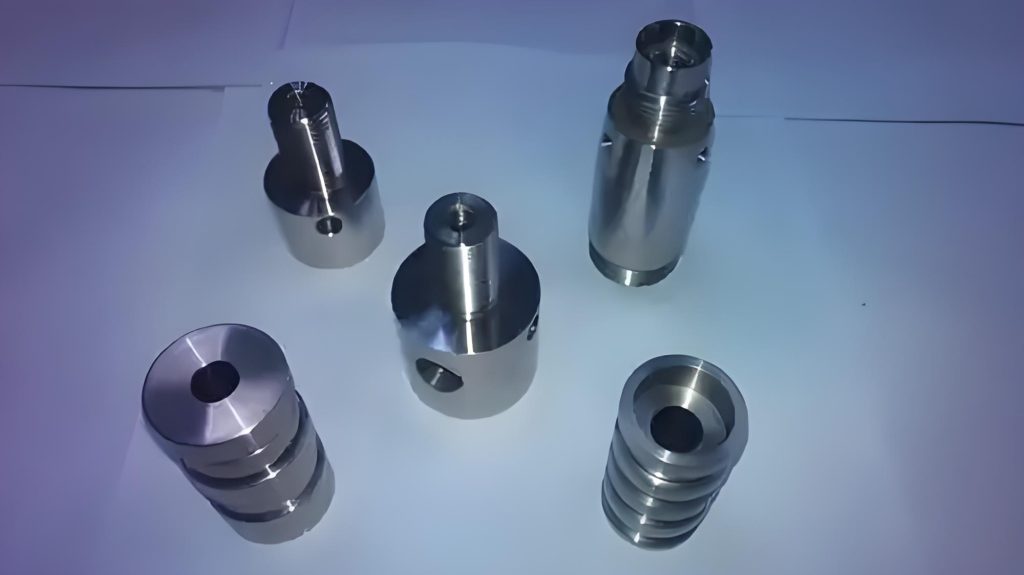
Understanding Precision in Hardware Parts
Precision in hardware parts refers to the degree of exactness with which a part is manufactured. It is about how closely the dimensions, tolerances, and surface finish of a part match the specified design requirements. High – precision parts have minimal deviation from the intended specifications, often measured in micrometers or even nanometers in some advanced manufacturing scenarios.
In the automotive industry, precision hardware parts are crucial for engine performance. For example, piston rings need to be manufactured with extreme precision. If they are not the right size or have an uneven surface finish, they can cause oil leakage, reduced engine efficiency, and increased emissions. In the aerospace sector, precision is a matter of life and death. Aircraft engine components, such as turbine blades, must be precisely machined. Even a tiny deviation in their shape can lead to imbalances during high – speed rotation, which could potentially cause engine failure.
Medical devices also rely heavily on precision hardware parts. Implants, like hip replacements, need to be a perfect fit for the patient’s anatomy. Precise manufacturing ensures that the implant integrates well with the body, reduces the risk of rejection, and improves the patient’s quality of life. In electronics, precision parts are essential for the miniaturization and high – performance of devices. Microchips, for instance, are made up of countless tiny components that must be manufactured with utmost precision to ensure proper functionality. Any deviation can lead to malfunctions, such as short – circuits or incorrect data processing.
Common Reasons for Deterioration in Precision
Equipment Wear and Tear
Over time, the equipment used in precision hardware parts processing experiences wear and tear. Machines such as CNC (Computer Numerical Control) lathes, milling machines, and grinding machines have moving parts that are subject to friction during continuous operation. For example, the spindle of a CNC lathe, which rotates at high speeds to cut and shape the hardware parts, can gradually lose its accuracy due to bearing wear. As the bearings wear out, the spindle may not rotate as smoothly as it should, leading to vibrations during the machining process. These vibrations can cause deviations in the cutting path, resulting in parts that do not meet the required precision.
In a manufacturing plant that produces precision gears for the automotive industry, after years of continuous operation, the milling machine’s cutting tools showed significant wear. The edges of the cutting tools became dull, which affected the accuracy of the gear teeth profiles. As a result, the gears produced had inconsistent tooth spacing, which could lead to issues such as noise during operation and reduced gear lifespan in the final automotive product.
Inadequate Maintenance
Regular maintenance is crucial for ensuring the optimal performance of precision hardware parts processing equipment. However, when maintenance is neglected, it can have a detrimental impact on the precision of the parts produced. Without proper maintenance, equipment may develop issues such as misaligned axes, reduced lubrication, and electrical problems.
For instance, if a CNC milling machine is not regularly serviced, the linear guides that allow the table to move smoothly can become dirty and lose their lubrication. This can cause the table to move unevenly, leading to inaccuracies in the positioning of the part being machined. In addition, the electrical components of the machine may degrade over time due to lack of maintenance. A malfunctioning servo – motor, which controls the movement of the machine axes, can result in incorrect positioning commands being sent, thereby affecting the precision of the part.
Operator Errors
Human factors also play a significant role in the precision of hardware parts processing. Inexperienced or poorly trained operators may not fully understand the intricacies of the equipment and the processing techniques required. They may make mistakes in programming the CNC machines, setting up the workpieces, or operating the machinery.
For example, when programming a CNC lathe, an operator may input incorrect dimensions or cutting parameters. If the feed rate (the speed at which the cutting tool advances along the workpiece) is set too high, it can cause excessive cutting forces, leading to tool breakage and inaccurate part dimensions. Similarly, improper workpiece setup can also result in precision issues. If a part is not clamped securely in the fixture, it may move during the machining process, causing the final part to be out of tolerance.
Material Quality Issues
The quality of the raw materials used in precision hardware parts processing is a critical factor. If the material has inconsistent properties, such as variations in hardness, density, or chemical composition, it can affect the machining process and the final precision of the parts.
For example, in the production of precision aerospace components, the use of titanium alloys is common. However, if the titanium alloy contains impurities or has inconsistent grain structures, it can cause problems during machining. The cutting tool may experience uneven wear when machining areas with different material properties, leading to inaccuracies in the part’s shape and dimensions. Additionally, materials with inconsistent hardness can cause issues with the cutting process. Harder spots in the material may require more force to cut, which can lead to tool deflection and dimensional errors.
Environmental Factors
The environment in which precision hardware parts processing takes place can also impact the precision of the parts. Temperature, humidity, and vibration are some of the key environmental factors.
Fluctuations in temperature can cause the materials and the equipment to expand or contract. In a precision machining facility where high – accuracy parts are produced, even a small change in temperature can lead to significant dimensional changes. For example, if a metal part is machined at a certain temperature and then the temperature of the environment drops, the part may contract, causing its dimensions to deviate from the desired specifications. Humidity can also affect the machining process. High humidity levels can cause corrosion on the equipment and the workpieces, which can in turn affect the precision of the parts.
Vibration is another factor that can disrupt the precision of machining. External vibrations from nearby machinery, traffic, or construction can be transmitted to the precision machining equipment. These vibrations can cause the cutting tool to deviate from its intended path, resulting in parts with poor surface finish and inaccurate dimensions. In a manufacturing area located near a busy road, the vibrations from passing trucks were found to be affecting the precision of the parts being machined on a high – precision grinding machine. Steps had to be taken to isolate the machine from the vibrations, such as installing vibration – dampening pads.
Impact on Industries
Automotive Industry
In the automotive industry, the precision of hardware parts is directly linked to the safety and performance of vehicles. For example, brake components, such as brake discs and calipers, need to be manufactured with high precision. If the brake discs are not perfectly flat or have inconsistent thickness, it can lead to uneven braking force distribution. This can cause the vehicle to pull to one side during braking, which is a serious safety hazard.
Moreover, engine components like crankshafts also rely on precision. A crankshaft with even a slight deviation in its journal diameters can cause increased friction, premature wear, and reduced engine efficiency. In addition, the pistons and cylinder liners in an engine must have an exact fit. If the tolerances are off, it can lead to issues such as blow – by (where combustion gases leak past the piston rings into the crankcase), which reduces engine power and increases oil consumption.
Aerospace Industry
In the aerospace industry, precision is non – negotiable. The consequences of precision degradation in hardware parts can be catastrophic. Aircraft wings, for instance, are made up of numerous precision – machined components. If the wing spars or ribs are not manufactured to the exact specifications, it can compromise the structural integrity of the wing. During flight, this could lead to wing failure, especially under high – stress conditions such as takeoff, landing, or turbulence.
Engine components in aerospace are also extremely sensitive to precision. Turbine blades, which operate at high temperatures and rotational speeds, must be precisely shaped. A small deviation in the blade’s shape can disrupt the airflow, reduce engine efficiency, and even cause engine failure. In the case of aerospace fasteners, such as bolts and rivets, precision is crucial. If these fasteners are not of the correct size or have poor thread quality, they may not hold the aircraft’s structure together properly, posing a significant risk to flight safety.
Electronics Industry
The electronics industry, with its ever – increasing demand for smaller and more powerful devices, heavily depends on precision hardware parts. In smartphones, for example, the tiny components on the printed circuit boards (PCBs) need to be placed with extreme accuracy. A misaligned capacitor or resistor can cause short – circuits, leading to device malfunctions.
For high – performance computing chips, precision is key to achieving optimal performance. The transistors on these chips are now measured in nanometers. Any deviation in their manufacturing precision can result in slower processing speeds, higher power consumption, or even complete chip failure. In addition, the miniaturization of electronics also requires precision in the manufacturing of connectors. These connectors need to provide a secure and reliable connection between different components. If they are not precisely made, it can lead to intermittent connections, which are a common cause of device failures in portable electronics.
Detecting Precision Degradation
Measuring Tools and Techniques
To identify when the precision of precision hardware parts is deteriorating, manufacturers rely on a variety of measuring tools and techniques. Coordinate Measuring Machines (CMMs) are widely used in the industry. These machines can accurately measure the three – dimensional coordinates of points on a part’s surface, allowing for precise comparison with the design specifications. For example, in the production of complex aerospace components, CMMs can detect even the slightest deviation in the shape and dimensions of the parts.
Another common tool is the micrometer, which is used to measure small distances with high precision. In precision machining, micrometers are used to measure the diameter of shafts, the thickness of plates, and other critical dimensions. Laser measurement systems are also becoming increasingly popular. They can provide non – contact measurements, which are useful for parts with delicate surfaces or in situations where contact measurement may cause damage. For instance, in the electronics industry, laser measurement systems can be used to measure the thickness of printed circuit boards or the alignment of components on the board.
Regular Quality Control Checks
Regular quality control checks are essential for detecting precision degradation in a timely manner. Manufacturers should establish a comprehensive quality control plan that includes sampling and inspection at various stages of the production process. For example, incoming raw materials should be inspected to ensure they meet the required quality standards. This can involve testing the hardness, chemical composition, and dimensional accuracy of the materials.
During the machining process, in – process inspections should be carried out at regular intervals. Operators can use measuring tools to check the dimensions of the parts being machined and make adjustments to the equipment if necessary. Final inspections of the completed parts are also crucial. This can involve 100% inspection for high – risk or critical parts, or sampling inspection for larger production runs. By analyzing the inspection data over time, manufacturers can identify trends in precision degradation and take proactive measures to address the underlying causes.
In conclusion, the precision of precision hardware parts is a critical aspect of manufacturing. A decline in precision can have far – reaching consequences for various industries, affecting product performance, safety, and reliability. By understanding the common reasons for precision degradation, such as equipment wear and tear, inadequate maintenance, operator errors, material quality issues, and environmental factors, manufacturers can take steps to prevent or mitigate these issues. Regular use of measuring tools and techniques, along with comprehensive quality control checks, can help in early detection of precision problems.
If you are in need of high – quality precision hardware parts processing, especially in the area of CNC aluminum processing, look no further than rapidefficient. They have a reputation for providing rapid and efficient services, ensuring that your parts are manufactured with the highest precision. Their state – of – the – art equipment and experienced team make them a reliable choice for all your precision hardware parts processing needs.
Solutions to Maintain Precision
Proper Equipment Maintenance
Regular and proper equipment maintenance is the cornerstone of ensuring the precision of hardware parts processing. First and foremost, a comprehensive maintenance schedule should be established. For CNC machines, daily checks should include inspecting the lubrication system. Adequate lubrication reduces friction between moving parts, preventing excessive wear. Operators should visually check the oil levels in the lubrication reservoirs and ensure that the oil distribution channels are clear.
Weekly maintenance could involve more in – depth inspections. This includes checking the alignment of the machine axes. Using precision measuring tools, such as dial indicators, operators can measure the deviation of the axes from their ideal positions. If any misalignment is detected, it should be corrected immediately. For example, if the X – axis of a milling machine is misaligned, it can cause parts to be machined with incorrect dimensions in the X – direction.
Monthly maintenance should include a more thorough examination of the equipment. This can involve disassembling and cleaning critical components, such as the spindle. The spindle bearings should be inspected for signs of wear, and if necessary, replaced. Additionally, the electrical components of the machine should be checked for loose connections, damaged wires, or overheating issues.
In addition to scheduled maintenance, manufacturers should also implement a preventive maintenance program. This can involve using condition – monitoring technologies, such as vibration sensors and temperature sensors. Vibration sensors can detect abnormal vibrations in the machine, which may indicate issues such as bearing wear or tool imbalance. Temperature sensors can monitor the temperature of critical components, such as the spindle motor. If the temperature exceeds the normal range, it could be a sign of a problem, such as insufficient cooling or excessive load. By detecting these issues early, manufacturers can take proactive measures to prevent equipment failures and maintain the precision of the parts being processed.
Staff Training and Skill Improvement
Well – trained staff are essential for maintaining the precision of hardware parts processing. Training programs should cover a wide range of topics, starting with in – depth knowledge of the equipment. Operators should be trained to understand the mechanical and electrical principles of the CNC machines, milling machines, and other equipment they operate. This knowledge allows them to identify potential problems early and make informed decisions when troubleshooting.
For example, a training session on CNC lathes could include lessons on how the spindle drive system works, how the servo – motors control the movement of the axes, and how the cutting tool is mounted and operated. Operators should also be trained in advanced programming techniques. As the complexity of precision hardware parts increases, so does the need for more sophisticated programming. Training in 3D modeling and CAM (Computer – Aided Manufacturing) software can enable operators to generate more accurate and efficient toolpaths.
In addition to technical training, soft skills training is also important. Communication skills, for example, are crucial for ensuring smooth operations in a manufacturing environment. Operators should be able to communicate effectively with quality control teams, maintenance technicians, and supervisors. Teamwork training can also enhance the overall efficiency of the production process. When different departments work together seamlessly, it becomes easier to identify and address precision issues promptly.
Skill improvement can also be achieved through on – the – job training and mentoring programs. Experienced operators can mentor new hires, sharing their practical knowledge and tips for achieving high – precision machining. Regular workshops and seminars can also be organized, where industry experts can share the latest trends and best practices in precision hardware parts processing.
High – Quality Material Selection
Selecting high – quality raw materials is a fundamental step in maintaining the precision of hardware parts. When choosing materials, manufacturers should first consider the material’s specifications. For example, in the production of precision metal parts, the chemical composition of the metal should be carefully evaluated. The presence of impurities can significantly affect the machining process and the final precision of the parts.
In addition to chemical composition, the physical properties of the material, such as hardness, density, and grain structure, are also important. For materials used in high – precision applications, such as aerospace components, a uniform grain structure is essential. A non – uniform grain structure can cause uneven machining, leading to dimensional inaccuracies.
Manufacturers should also establish relationships with reliable suppliers. Reputable suppliers are more likely to provide consistent – quality materials. Before purchasing a large quantity of raw materials, samples should be tested. This can involve conducting hardness tests, tensile strength tests, and dimensional measurements. For example, if a manufacturer is considering using a new batch of aluminum alloy for precision parts, samples of the alloy should be tested for hardness to ensure it meets the required specifications. If the hardness is too high or too low, it can affect the cutting process and the final dimensions of the parts.
Furthermore, incoming raw materials should be inspected upon arrival. This inspection should be carried out in accordance with strict quality control procedures. Any materials that do not meet the specified standards should be rejected. By ensuring that only high – quality raw materials enter the production process, manufacturers can significantly reduce the risk of precision degradation due to material quality issues.
Controlling the Working Environment
Controlling the working environment is crucial for maintaining the precision of hardware parts processing. Temperature control is of utmost importance. In a precision machining facility, the temperature should be maintained within a narrow range. For example, in a facility that produces high – precision optical components, the temperature may need to be controlled within ±1°C. This can be achieved through the use of air – conditioning systems and temperature – monitoring sensors.
Humidity also needs to be regulated. High humidity levels can cause corrosion on the equipment and the workpieces. To prevent this, dehumidifiers can be installed in the manufacturing area. In addition, the air quality in the working environment should be monitored. Dust and other particulate matter can affect the precision of the machining process, especially in high – precision grinding operations. Air filters can be used to remove dust from the air, ensuring a clean working environment.
Vibration isolation is another key aspect of environment control. Precision machining equipment should be isolated from external vibrations. This can be achieved by installing the equipment on vibration – dampening pads or using anti – vibration mounts. In areas where there is significant external vibration, such as near a construction site or a busy road, additional measures may be required, such as building a vibration – isolation wall around the machining area. By controlling these environmental factors, manufacturers can create an optimal working environment that helps to maintain the precision of hardware parts processing.
Conclusion
In conclusion, the precision of precision hardware parts is a critical aspect that cannot be overlooked in the manufacturing industry. The reasons for the deterioration of precision are multifaceted, ranging from equipment – related issues such as wear and tear and inadequate maintenance to human factors like operator errors, material quality problems, and environmental influences. The impact of precision degradation on industries such as automotive, aerospace, and electronics is far – reaching, affecting product performance, safety, and reliability.
However, by implementing solutions such as proper equipment maintenance, staff training, high – quality material selection, and environmental control, manufacturers can effectively maintain and improve the precision of their hardware parts. This not only ensures the production of high – quality products but also enhances the competitiveness of companies in the global market.
If you are looking for a reliable partner for precision hardware parts processing, especially in CNC aluminum processing, rapidefficient is an excellent choice. Their commitment to rapid and efficient services, combined with state – of – the – art equipment and a skilled team, makes them a top – tier option for all your precision machining needs.
Recommendation of Rapidefficient CNC Aluminum Machining Service Providers
When it comes to CNC aluminum machining, rapidefficient stands out as a top – tier service provider. They have a state – of – the – art facility equipped with the latest CNC machining technology. Their high – precision CNC machines are capable of handling complex aluminum parts with ease.
One of the key advantages of rapidefficient is their team of experienced engineers and technicians. These professionals have in – depth knowledge of aluminum machining, understanding the unique properties of aluminum and how to optimize the machining process for the best results. They are well – versed in handling various types of aluminum alloys, ensuring that the parts are machined to the highest precision.
rapidefficient also offers a wide range of services. Whether you need prototyping for a new product or large – scale production of aluminum parts, they can meet your needs. Their rapid turnaround time is another factor that sets them apart. They understand the importance of time in the manufacturing industry and strive to deliver the finished parts as quickly as possible without compromising on quality.
In addition, rapidefficient has a strict quality control system in place. Every part that leaves their facility undergoes rigorous inspection to ensure it meets the highest industry standards. Their commitment to quality, combined with their efficient services, makes them an ideal choice for all your CNC aluminum machining requirements.

